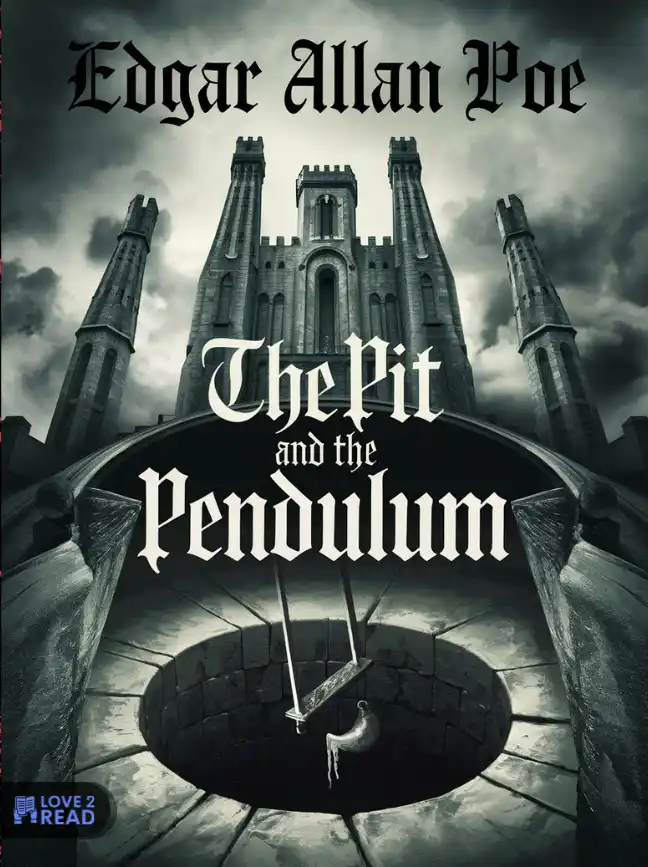A room in Polonius’s house.
POLONIUS AND REYNALDO enter .
POLONIUS.—Give him this money and these letters, Reynaldo.
REYNALDO.—So shall I do, my lord.
POLONIUS.—You will be wonderfully wise, good Reynaldo, if you will, before visiting him, inquire after his conduct.
REYNALDO.—My lord, I had that intention.
POLONIUS.—Well said, my goodness, very well said. Follow this, sir. Begin by asking me what Danes are in Paris, how they came to be there, who they are, their resources, their dwelling, their companies, their expenses; and when, by this continuous interrogatory, drifting about, you find that my son is known, approach him more closely, rather than approaching at once with particular questions. Introduce yourself, for instance, as having some distant acquaintance with him. Thus, say: “I know his father and his friends, and even him a little.” Do you understand that, Reynaldo?
REYNALDO.—Yes, very well, my lord.
POLONIUS.—”And he, a little—but,” you may add, “not very well. Besides, if he is the one I mean, he is very deranged, given to this, to that.” And then charge him with whatever blue tale you please. Ah, indeed! Yet, nothing low enough to dishonor him. Beware of that, sir. But only that frivolity, that disorder, those ordinary deviations which are the notorious and well-known companions of youth and liberty.
REYNALDO.—As if I were playing, my lord.
POLONIUS.—Yes; or drinking, or carousing, or swearing, or quarreling, or chasing girls; you may go so far as that.
REYNALDO.—My lord, that would dishonor him.
POLONIUS.—Well, no, if you know how, while accusing him, to temper the matter. You must not lay an additional scandal on him, as if he were given to debauchery—That is not what I mean. But murmur his faults so delicately that they may pass for the wrongs of liberty, for the flashes and bursts of a soul on fire, for a natural ardor in untamed blood, the assaults of which all, at that age, feel.
REYNALDO.—But, my good lord…
POLONIUS.—Why do I charge you to do this?
REYNALDO.—Yes, my lord, I would like to know.
POLONIUS.—Well, sir, this is my purpose; and this stratagem, I believe, is of guaranteed success. When you have attributed to my son these slight defects, as if he were an object which, at Fuser, had been a little stained—follow me,—if the partner of your conversation, the one you would sound, has ever seen the young man about whom your murmurs are directed guilty of any of the aforesaid crimes, be assured that he will end by saying to you in conclusion, “My good sir,” or “my friend,” or “sir,” according to the manner of speech or title used in the country, or by the person in question…
REYNALDO.—Very well, my lord.
POLONIUS.—And then, sir, he will say that—he will say—what was I saying? By the holy mass! I was saying something—where did I leave off?
REYNALDO.—And he will end by saying, in conclusion…
POLONIUS.—He will end by saying, in conclusion, yes, morbleu! he will end by saying to you: “I know this gentleman, I saw him yesterday or the other day, or at such a time, or at such another, with such and such; and, as you say, he was there playing; or he was swallowing his drink, or he was having a dispute at the palm;” or perhaps: “I saw him enter one of those trading houses,” videlicet , a bad place,… or such and such. Do you see now? The hook of your lie will thus take the carp of the truth; and, that is how, other people of good sense and insight, by dint of machines and by trying obliquely, we know indirectly how to follow our direction. It is thus, according to my instructions and advice above, that you will act with my son. Are you there, or are you not?
REYNALDO.—I am, my lord.
POLONIUS.—God be with you! Have a good journey.
REYNALDO.—My good lord…
POLONIUS.—Observe his inclinations for yourself.
REYNALDO.—So shall I do, my lord.
POLONIUS.—And let him sing his scale.
REYNALDO.—Good, my lord.
(He leaves.)
(Ophelia enters.)
POLONIUS.—Farewell!—What is it, Ophelia? What is it?
OPHELIA.—Oh! my lord, my lord, I was so afraid!
POLONIUS.—What, in heaven’s name?
OPHELIA.—My lord, while I was sewing in my closet, Lord Hamlet, with his doublet all undone, and no hat on his head, his stockings crumpled, and without garters, and falling, rolled up, to his ankle, as pale as his shirt, his knees knocking together, and with a look of such piteous expression as if he had been loosed from the pit of hell to tell a tale of horrors—he came and sat before me.
POLONIUS.—Mad for the love of thee?
OPHELIA.—My lord, I know not; but truly, I fear it.
POLONIUS.—What did he say?
OPHELIA.—He took me by the wrist and held me very tightly; then he drew back the whole length of his arm, and holding his other hand thus above his brow, he fell into a contemplation of my face as if he would have drawn it. He remained thus for a long time. At last—a little jerk to my arm, and thrice his head thus swaying up and down—he heaved a sigh so piteous and so deep, that it seemed as if it would burst his whole body and put an end to his existence. This done, he let me go; and, with his head turned over his shoulder, he seemed to find his way without his eyes, for he passed the door without their aid, and to the last moment, he kept their light turned towards me.
POLONIUS. Come, come with me; I’ll see the king. This, indeed, is the madness of love, which ravages itself with its own violence, and drives the will to desperate enterprises, as often as any other passion that is under heaven to afflict our nature. I am sorry. But what? Have you spoken any harsh words to him lately?
OPHELIA.—No, my good lord; but, as you commanded, I rejected his letters, and refused his visits.
POLONIUS.—That made him mad. I am sorry I did not observe him with more attention and discernment; I feared it was only a jest, and that he meant your shipwreck. But cursed be my jealous suspicions! It seems to be the nature of our age to exceed our grasp in our judgments, as it is the common fault of younger people to be unreflective. Come, let us go to the king; this must be known, the secret of which may cause more pain than this love revealed will cause hatred. Come.
(They go out.)





